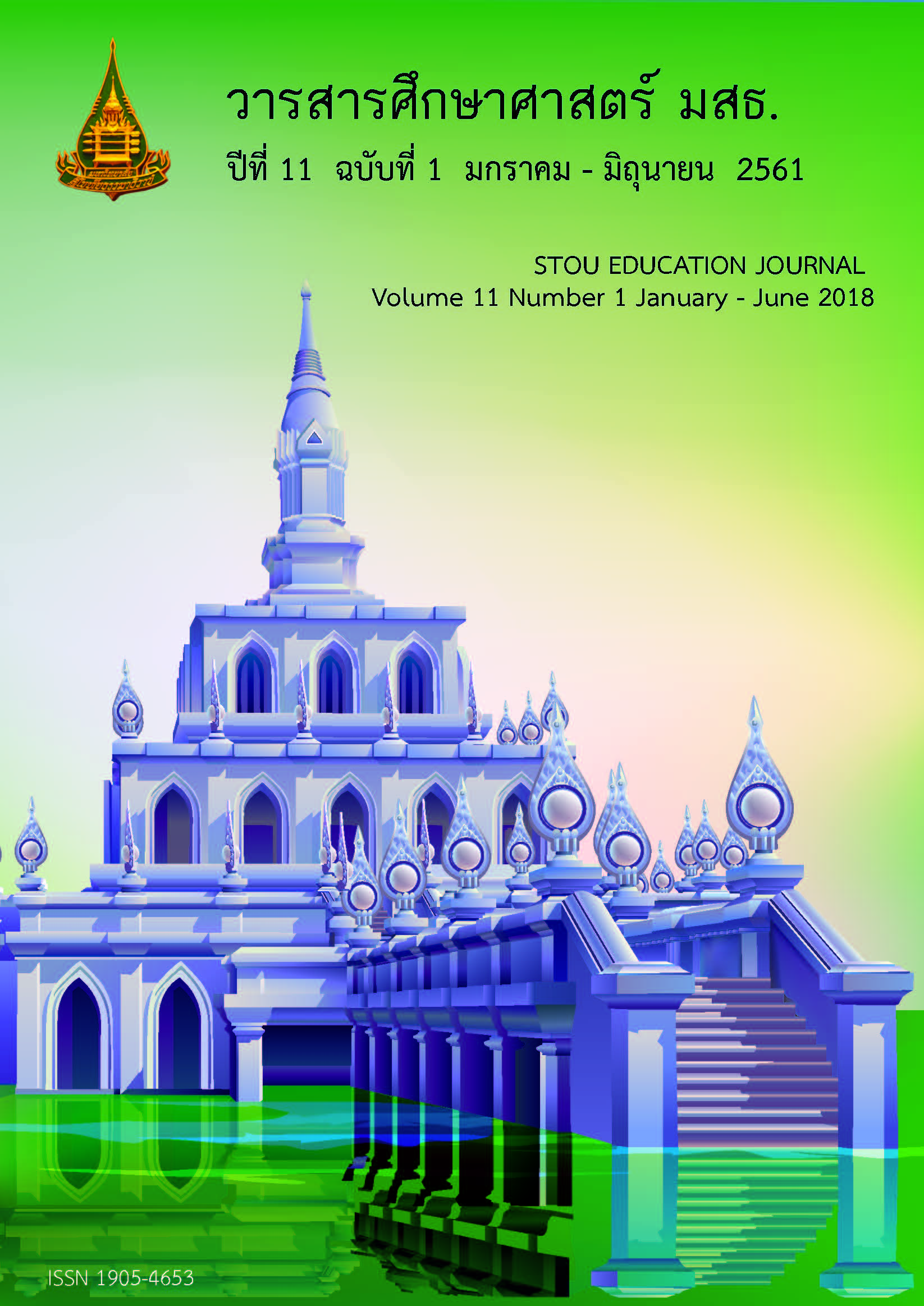การสังเคราะห์สถานภาพการศึกษาด้านปรัชญาญี่ปุ่นในประเทศไทย
Main Article Content
บทคัดย่อ
ปรัชญาญี่ปุ่นเป็นสิ่งที่ถูกพูดถึงและทำการศึกษากันในประเทศไทยมาแล้วพอสมควร แต่องค์ความรู้ในด้านนี้ยังไม่เคยถูกสำรวจว่า ในประเทศไทยมีสถานภาพที่ก้าวหน้ามากน้อยเพียงใด การศึกษาวิจัยครั้งนี้จึงมีวัตถุประสงค์เพื่อสังเคราะห์องค์ความรู้ด้านปรัชญาญี่ปุ่นของไทย ด้วยวิธีวิเคราะห์เนื้อหาเชิงคุณภาพ ร่วมกับการพรรณนาร้อยละในทางสถิติ โดยจำแนกเนื้อหาขององค์ความรู้ออกตามหมวดหมู่ ผลการศึกษาพบว่า ตั้งแต่ปี พ.ศ. 2460 ถึง 2560 พบงานที่มีเนื้อหาเข้าข่ายทั้งหมด 268 เรื่อง แต่เมื่อวิเคราะห์เนื้อหาแล้วพบว่ามีงาน 66 เรื่องเท่านั้น ที่เกี่ยวข้องกับปรัชญาญี่ปุ่น ในจำนวนนี้มีองค์ความรู้โดยตรงในหมวดปรัชญาญี่ปุ่น 13 เรื่อง (ร้อยละ 19.69) ส่วนรองลงมาเป็นองค์ความรู้โดยอ้อม ได้แก่ แนวความคิดญี่ปุ่น พบมากที่สุด 43 เรื่อง (ร้อยละ 65.15) ถัดมาคือประวัติศาสตร์ความคิดญี่ปุ่น กับมุมมองชีวิตญี่ปุ่น พบอย่างละ 5 เรื่องเท่ากัน (ร้อยละ 7.58 ต่อเรื่อง) อีกทั้งเมื่อพิจารณาเนื้อหาขององค์ความรู้ปรัชญาญี่ปุ่นโดยตรงทั้ง 13 เรื่อง พบว่า มีนักปรัชญาญี่ปุ่นเพียง 6 คนเท่านั้นที่ไทยให้ความสนใจ โดยมากที่สุด คือ โดเง็น (ร้อยละ 35.71) รองลงมา คือ รินไซ (ร้อยละ 21.43) ถัดมา คือ ชินรัน และ
ซูสุกิ ดี ที พบในอัตราเท่ากัน (ร้อยละ 14.29 ต่อคน) ส่วนที่น้อยที่สุด คือ ฟุคุซาวะ ยุคิจิ และ วะสึจิ เทะสึโร (ร้อยละ 7.14 ต่อคน) ดังนั้น เนื้อหาและปริมาณขององค์ความรู้ที่ได้จากการศึกษาครั้งนี้ แสดงให้เห็นว่า องค์ความรู้
ด้านปรัชญาญี่ปุ่นของประเทศไทยนั้นยังไม่อยู่ในสภานภาพก้าวหน้าเท่าที่ควร


